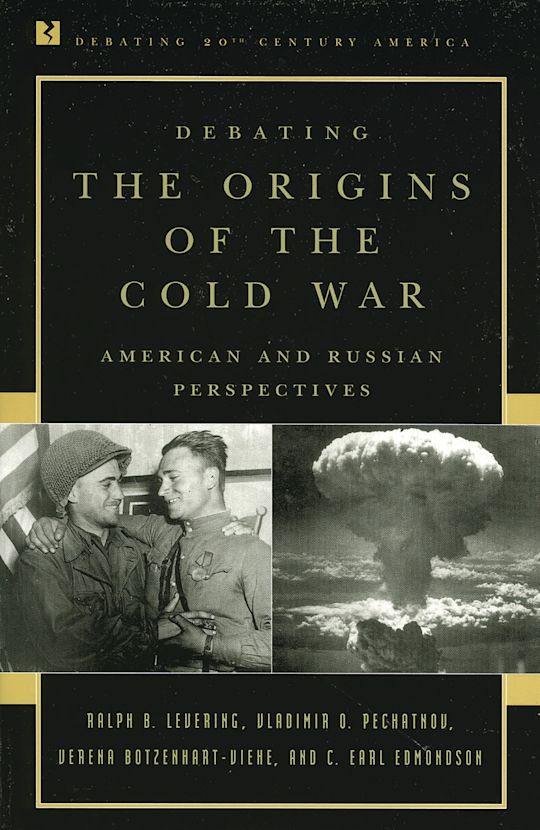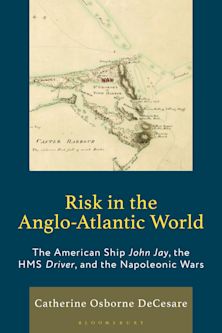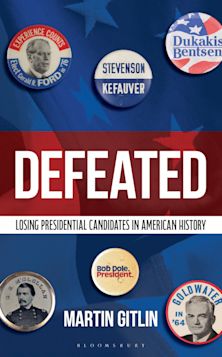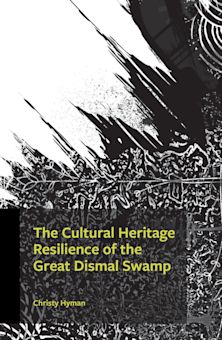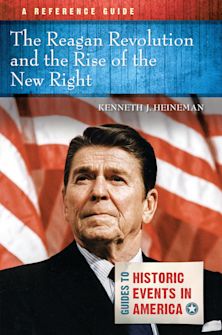Debating the Origins of the Cold War
American and Russian Perspectives
Ralph B. Levering (Author) , Vladimir O. Pechatnov (Author) , Verena Botzenhart-Viehe (Author) , Earl C. Edmondson (Author)
- Textbook
Debating the Origins of the Cold War
American and Russian Perspectives
Ralph B. Levering (Author) , Vladimir O. Pechatnov (Author) , Verena Botzenhart-Viehe (Author) , Earl C. Edmondson (Author)
- Textbook
Description
Debating the Origins of the Cold War examines the coming of the Cold War through Americans' and Russians' contrasting perspectives and actions. In two engaging essays, the authors demonstrate that a huge gap existed between the democratic, capitalist, and global vision of the post-World War II peace that most Americans believed in and the dictatorial, xenophobic, and regional approach that characterized Soviet policies. The authors argue that repeated failures to find mutually acceptable solutions to concrete problems led to the rapid development of the Cold War, and they conclude that, given the respective concerns and perspectives of the time, both superpowers were largely justified in their courses of action. Supplemented by primary sources, including documents detailing Soviet espionage in the United States during the 1930s and 1940s and correspondence between Premier Josef Stalin and Foreign Minister V. M. Molotov during postwar meetings, this is the first book to give equal attention to the U.S. and Soviet policies and perspectives.
Table of Contents
Chapter 2 The Atlantic Charter, August 14, 1941
Chapter 3 Comment on the Results of the Decisions Made at the Yalta Conference
Chapter 4 Secretary of State James Byrne's Speech in Stuttgart on Germany's Future, September 6, 1946
Chapter 5 Speech by J. Edgar Hoover, Director, Federal Bureau of Investigations, at the Annual Convention of the American Legion in San Francisco, September 30, 1946
Chapter 6 George K. Kennan's Long Telegram, February 1946
Chapter 7 Henry A. Wallace's Speech in New York City, September 12, 1946
Part 8 Part II: The Russian Perspective
Chapter 9 Stalin to Politburo Four (Vyacheslav Molotov, Lavrenti Beria, Mikoyan, and Malenkov), Ciphered Telegram, December 9, 1945
Chapter 10 A Compilation of [Written] Comments on Draft Treaties Regarding Demilitarization and Disarmament of Germany and Japan Proposed by [U.S. Secretary of State James] Byrnes
Chapter 11 The Minister of State Security Appeals for Measures to Close Down British Propaganda in the U.S.S.R.
Chapter 12 President Harry S. Truman's Speech to Congress, March 12, 1947
Chapter 13 Instructions for the Soviet Delegation to the Meeting of Foreign Ministers in Paris, June 25, 1947
Chapter 14 Record of J[osef]. V[issarionivich]. Stalin's Conversation with the Czechoslovak Government Delegation on the Issue of Their Position Regarding the Marshall Plan and the Prospects for Economic Cooperation with the U.S.S.R.
Chapter 15 Record of the Meeting of Comrade J[osef]. V[issarionivich]. Stalin with the Secretary of the Central Committee of the French Communist Party [Maurice] Thorez
Chapter 16 Report by L. P. Beria and I. V. Kurchatov to J. V. Stalin on Preliminary Data Received during the Atomic Bomb Test
Chapter 17 The [Nikolai] Novikov Report [Telegram]
Product details
| Published | 26 Mar 2002 |
|---|---|
| Format | Ebook (Epub & Mobi) |
| Edition | 1st |
| Extent | 208 |
| ISBN | 9780742576414 |
| Imprint | Rowman & Littlefield Publishers |
| Series | Debating Twentieth-Century America |
| Publisher | Bloomsbury Publishing |
Reviews

ONLINE RESOURCES
Bloomsbury Collections
This book is available on Bloomsbury Collections where your library has access.









